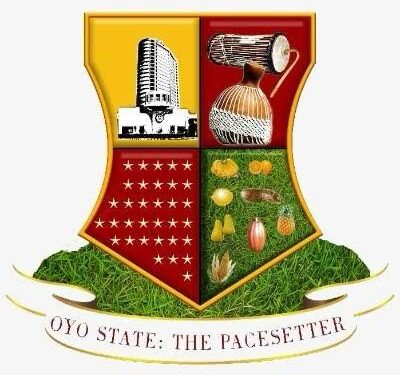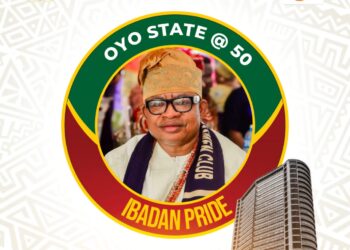There is an age-old saying: “Government has no business in business.” At first glance, it suggests a strict boundary — that the role of government is to govern, not to trade or produce goods.

But in the complex tapestry of modern economies, especially in developing regions like Nigeria, this line blurs.
Not because government is to become a competitor in the marketplace, but because its role in enabling, regulating, and attracting business has never been more crucial.

This is the business of governance — not to do business, but to create the environment where business can thrive.


Let’s take a closer look through the story of Oyo State. A few years ago, Ibadan, the capital of Oyo State, was seen by many as a sprawling city of unrealized potential.
Dusty roads, underutilized assets, and low investor confidence painted a challenging picture.

Yet, underneath this, Oyo held significant promise: vast arable land, a strategic location that shares boundaries with Republic of Benin to the west, Ogun State to the south and southwest, Osun State to the southeast and east and Kwara State to the north and northeast; with a rich cultural heritage, and a vibrant population.

Fast forward to today — Oyo State has repositioned itself as a beacon of how governance, when smartly done, becomes a catalyst for development rather than a bottleneck.
Under the leadership of Governor Seyi Makinde, the government didn’t prioritize setting up businesses or competing with private firms.
Instead, it focused on governance as a platform for Infrastructure Investment. Roads were built not just to reduce traffic, but to connect all zones for economic integration.
The Moniya-Iseyin road, for example, opened up agricultural corridors and encouraged agribusinesses to move in. That is the business of governance — removing friction in value chains.
Oyo reformed its land administration processes and introduced more transparent taxation systems.
It digitized services, making it easier for investors to register businesses and access information. That is not government doing business — it’s government making business possible. Oyo State also embraced the PPP model to drive its development agenda without bloating the public sector.
The government provided land, policy stability, and regulatory clarity — the private sector brought capital, efficiency, and innovation.
By investing in the education sector and health, the state is cultivating a workforce that meets 21st-century economic demands. The aim isn’t just to reduce unemployment but to also make the state attractive to businesses needing skilled labor.
It’s however important to unpack the Myth surrounding this important discourse; the myth that government should stay entirely out of business often misleads policymakers into passivity. But governance is not about doing nothing.
It is about doing the right things to support private enterprise. When governments focus on infrastructure, security, transparency, and policy consistency as being witnessed in Oyo State, they are in fact doing “business” — the business of governance.
Oyo State’s example shows what is possible when the public sector understands its true role — to guide, facilitate, and partner. It reminds us that the business of governance is not to run enterprises, but to orchestrate the ecosystem in which enterprises flourish.
As more Nigerian states confront the pressures of job creation, infrastructure deficits, and global competition for investment, the lesson is clear: Governance is not a bystander to business. It is the stage upon which the private sector performs.
And as Oyo State displays its potential to the world, it validates that when governance gets it right, sustainable development isn’t a dream — it becomes a story worth telling.


You can get every of our news as soon as they drop on WhatsApp ...To get all news updates, Join our WhatsApp Group (Click Here)
















